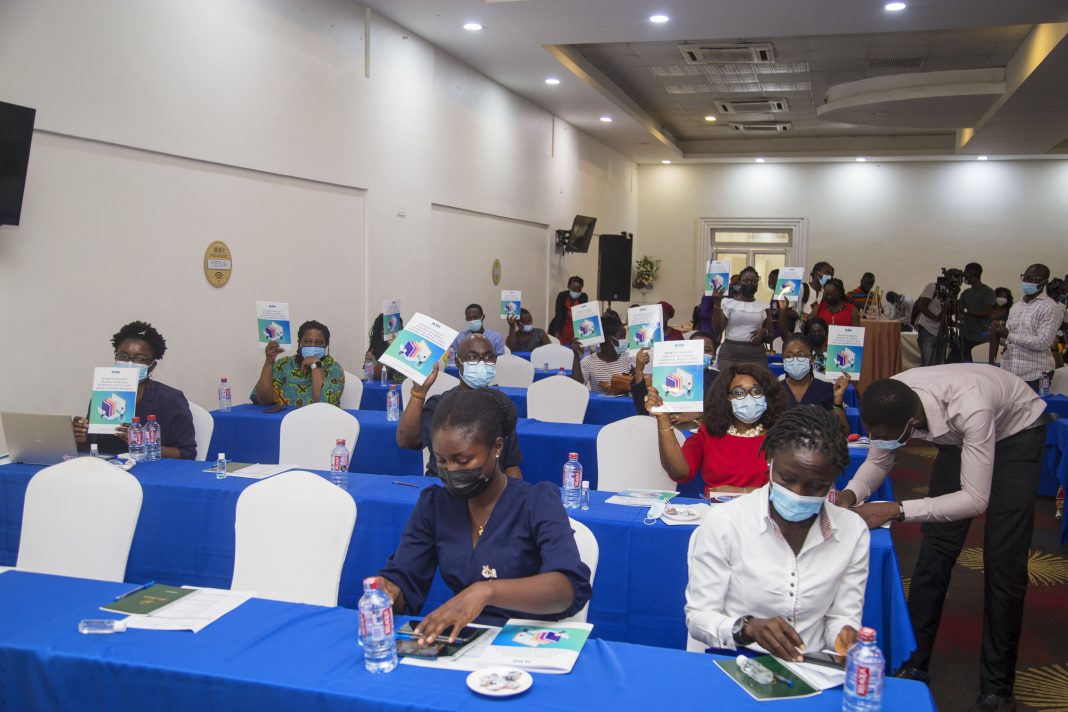The benefits of the internet to an individual, society and the economy of a nation are undisputed across all circles. Women’s participation in the meaningful use of the internet just as in the other facets of life lags due to some socio-cultural tendencies, lack of access, affordability of internet-enabled devices and data bundles, harassment and abuse online. For Ghana to be able to compete on the international level, this gender gap must be addressed to avoid falling further back in development.
On September 1, 2021, the Media Foundation for West Africa (MFWA) with support from the World Wide Web Foundation organised a national stakeholder’s forum of gender rights CSO’s, other CSO’s, gender activists, journalists’ groups/associations and some governmental agencies on the theme Women’s Rights Online in Ghana. A mapping report which thoroughly highlights current policies aimed at bridging the gender digital gap, the shortcomings of the policies with recommendations was launched at the event. The forum formed part of efforts to sensitize the stakeholders on the gender digital gap, propose action plans and implement that may increase the number of females meaningfully using the internet in Ghana.
Mr. Sulemana Braimah, the Executive Director of the Media Foundation for West Africa, expressed worry about the status quo where women are left behind in all aspects of society notably in education and leadership. He observed that the trend has unfortunately crept into the use of ICT tools and the internet. He urged women to demand involvement in the digital space as it is their right and it is to the benefit of the nation they partake meaningfully in the virtual space.
Mrs Afia Darko Asare with the National Cybersecurity Centre during the open forum hinted that Ghana’s Cybersecurity Law (Cybersecurity Act, 2020, Act 1038) has a provision that caters for the girl child. She noted that the Act will address the issue of sextortion that some participants raised as the reason for which they have limited their use of the internet or participation in the online space. She urged all females who encounter any form of abuse online to call or text “292” with the complaint for investigation to begin.
After 2 hours of deliberations, the participants came up with some recommendations to help address the gender digital gap from the individual standpoint to the policymakers. Below are some recommendations from the forum
1) Intensify public education and awareness on Digital Rights
Digital rights are as fundamental as all other human rights. It is derived from the right or freedom of expression. Citizens from all walks of life, especially women and less privileged girls, need to be educated on online rights to ensure they maximise their potential in this digital age. This awareness creation agenda must be taken up by all individuals and implore the National Commission for Civic Education (NCCE) and Information Services Department (ISD) to use their apparatus to further this cause. An effective sensitization campaign is the first step to bridge the gender digital gap and gradually remove the inequality suffered by women and girls in Ghana.
2) Policies on Digital Rights should be gender-specific and address challenges
Women living without disabilities experience difficulty in using ICT tools due to a lack of requisite skills or availability of ICT technologies. Unfortunately, existing policies are straight jackets and lack specificity on addressing digital rights issues of women, girls, or women living with disabilities. Policy-makers are encouraged to be gender-driven in the policy formulation processes and include assistive technologies where necessary to ensure women take advantage of the digital space.
3) Report any infringement on your digital rights to the appropriate quarters to reduce the occurrence
Infringement on digital rights does occur online. It takes the form of harassment, sextortion, cyberbullying, blackmail, revenge porn to mention a few. Seek help or report any form of abuse or infringement on your digital rights to the National Cybersecurity Centre (NCSC) via phone or SMS code 292 or the Ghana Police Service. In reporting such incidents, the perpetrators or ring of perpetrators will get investigated and punished and will prevent other netizens from suffering a similar fate. Do not stay offline as a result of harassment or abuse, it is your basic human right to go online.
4) Infrastructure development in the Telecommunication sector and reducing taxes on ICTs to make ICT technologies readily available
After creating awareness on online rights and building capacities of women and disadvantaged girls, there is the need to put the acquired skills to use. The high cost of ICT technologies coupled with the high data cost continues to cripple efforts made at bridging the digital gap. Government can support telecommunication companies with tax incentives that can be conditioned on improving network and internet connection speeds across the country especially the hinterlands. Again, a reduction in taxes on digital devices will go a long way to increase access to ICT technologies and gradually bridge the gender digital gap.





